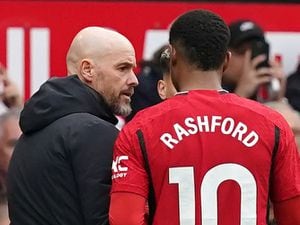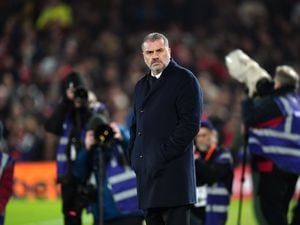England veterans reflect on change of culture in women’s game
The Lionesses are through to the knockout stages of Euro 2017.
England will tackle France in the quarter-finals of Euro 2017 on Sunday after group wins against Scotland, Spain and Portugal.
Manager Mark Sampson has instilled a bold attitude, and in his fourth year in the job could deliver a major trophy to reward the Football Association for its huge investment in the women’s game.
It is a wholly different story to when England sank to rock bottom four years ago at the European Championship, as Hope Powell’s team crashed out with one point from three group games.
Powell lost her job, the squad did plenty of soul-searching, and Press Association Sport recently spoke to three of the most experienced players in the England ranks, veterans of major tournaments since Euro 2005, to understand the culture change.
WE ARE FAMILY
Fara Williams (164 caps, 33 years old) says:
“We see it as though we are one, we are a family, we are together and we do look after each other. And we have to work on it. It’s not just something that’s happened overnight. This team now under Mark for the last four years has worked on relationships, worked on our team, and how we can get it stronger. That’s something that since Mark came in, from day one, he tried to install. He looked at players, characters, and he understands players have different characters. There are fiery characters, quiet characters, some caring characters, and you need a blend to make the squad tick.”
ONLY THE BEST WILL DO
Alex Scott (140 caps, 32 years old) says:
“When you’ve got a manager who’s so confident and has such belief in you as players, it breeds that confidence among each other. You have a manager who feels it’s okay for me to aim to be the best, for me to be walking around saying we want to win and get the gold medal. There’s nothing wrong with having aspirations and saying it out loud, because the moment you start saying it out loud it seems more realistic and you’re more determined and focused to do it. That’s the key message here: that it’s okay to have that belief and it’s spreading around the team.
“That’s the mentality that I’ve seen change throughout this team since I first started with England in 2005. I had aspirations like, ‘I want to be the best right-back in the whole world’, and it was like, ‘Oh my gosh, if I actually said that I’d be frowned upon’.”
GAME CHANGERS
Casey Stoney (130 caps, 35 years old) says:
“Young girls today can come into the game and sign a professional contract after leaving school; that didn’t happen when I was younger. We had full-time jobs, we had to train around work and we played on awful pitches and had no facilities. I will never forget that and that’s why I work hard every single day to try to make sure we don’t go back to those days. We keep changing perceptions; we keep putting bums on seats, to keep getting the revenue into the game. We want it to become sustainable, so that girls don’t have to go back to having full-time jobs. They might not ever get the same money as the male players, but that’s not what we’re asking for, we’re just asking for the same opportunities.”





